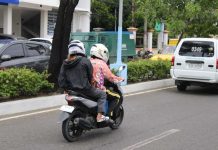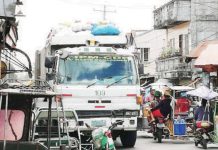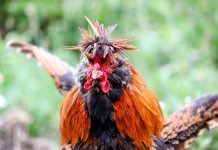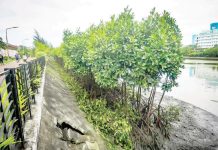
WITH the sugar milling season in full blast, hundreds of sacadas or migratory sugar workers from Antique have started arriving in batches over the weekend. About 500 from a total of 5,000 workers who processed their work and entry permits were deployed to southern Negros.
Zeaphard Gerhart Caelian, head of the Provincial Disaster Management Program said they scheduled the arrival of workers in groups so as not to overwhelm the testing team who immediately conduct RT-PCR swabbing upon their entry.
The workers are then required to go on a mandatory quarantine in the respective farms where they will be deployed until their results are out. “They will only be allowed to work when they test negative,” Caelian said.
Annually, some 10,000 migrant sugar workers are hired in the sugar capital as cane cutters. Majority of them come from Antique but because of the pandemic and the stringent requirements, the numbers went down which may cause a longer sugar milling season this crop year.
The upside of the new process is that it has allowed the proper documentation of sacadas and bans the use of minors. It also institutionalized better living quarters for the workers as farms had to undergo inspection and approval from both the Sugar Regulatory Administration (SRA) and the Department of Labor and Employment (DOLE) for their quarantine facilities.
The downside though is that it will be more expensive for sugar planters as they will have to subsidize the cost of testing for the workers.
Meanwhile, the appeal of Iloilo 3rd District Board Member Matt Palabrica to President Rodrigo Duterte and Agriculture secretary William Dar to stop the export of sugar to the United States landed in the news here.
The resolution approved by the Iloilo Provincial Council last week said that the continuing program of exporting sugar to the US at a much lower price will result to a loss of over P900 million. Add to that the estimated deficit for sugar consumption in the country, Palabrica says “forced” export of sugar doesn’t make sense.
Last month, SRA issued the sugar classification order pegging seven percent of total production as “A” sugar intended for the US market. This practice started under a treaty when the US proposed a program to keep the sugar industry afloat during a crisis. There was a time during the Noynoy Aquino administration that this was halted due to low sugar production.
SRA Board Member Dino Yulo, representing the sugar producers, however said that the allocation was based on consultation with sugar federations, unaffiliated sugar groups and the millers. The Sugar Board is composed of the DA, the SRA Administrator, a representative of the millers and Yulo.
Yulo said producers’ recommendations ranged from 0, 3, 5, 6 the highest being 7 percent which was what majority of the SRA board decided. Yulo pushed for a 5 percent allocation but added that he welcomes any investigation so they can air their side in the proper venue.
In Bacolod City, the local government declared the mass testing for market vendors a success after 1,786 participated in the testing conducted three public markets last Saturday.
It was marred by a noise barrage at the start but eventually, vendors had to submit themselves to the mandatory testing or they will not be allowed to operate. Those who were tested were issued market passes and signages were placed on their stalls attesting to their compliance.
“The numbers say it all. More of our people are now aware of the necessity of testing in our fight against COVID-19 and they realize that such will redound to their personal benefit as well as that of their families and the public in general,” Bacolod City’s Mayor Bing Leonardia said.
Bing took a swipe at political detractors for sowing misinformation and resorting to black propaganda to confuse and mislead the public. “It is unfortunate that in the midst of this pandemic, there are still people who exploit the situation for their political agenda,” he said.
Sen. Richard Gordon was also in town recently to announce that the Philippine Red Cross is going to start conducting a faster and cheaper saliva tests for COVID-19 this week once approved by the DOH. This will be cheaper by about a thousand than existing tests.
However, he said this could be hampered if PhilHealth will not pay up the P1 billion they owe Red Cross for tests already conducted.
“PRC may be forced to stop COVID testing for the public and will only be able to conduct tests for the paying private sector,” Gordon said.
Gordon inspected the new molecular lab in Bacolod adding they are setting up one in Passi, Iloilo for Panay. Those who can afford to pay for testing prefer the PRC lab as results are out overnight.
Gordon also said that contrary to reports that a vaccine will be available by the end of this year, he believes it will be by June of 2021 still and calls for proper of health protocols as the only way to halt the spread of the virus till then./PN







